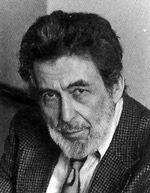































|
 July/August, 1998 Volume XIII Number 1
July/August, 1998 Volume XIII Number 1


Students burning newspapers (again)
by Nat Hentoff
According to the Cornell Review - a conservative student newspaper on campus- a black Baptist preacher in Colorado asked syndicated cartoonist Chuck Asay if he would illuminate sharply the high percentage of abortions among black women.
The resultant cartoon was titled "Which One Of These Kills More Blacks?" and contained three panels. One showed a Ku Klux Klan murder-by-fire. The second summoned followers of Hitler in front of a large swastika. And in a third, a doctor is about to perform an abortion in front of a sign: Planned Parenthood Abortion Clinic.
The cartoon was reprinted last October in the Cornell Review, which was in strong agreement with its message but also wanted to support the Boston College Observer, which had created a furor on its campus by publishing the cartoon. A sizable number of copies of the Boston College paper were destroyed by protesters.
On the Cornell campus, the first sign of an impending bonfire was a series of posters proclaiming that "the Cornell Review has gone too far again! Copies will be burned at 11:30." And not for the first time. Issues of the Cornell Review had been stolen and burned in the spring because it ran a parody of ebonics.
At the appointed time, in front of the main dining hall - according to the Cornell Sun, the mainstream student newspaper - some 500 copies of the Cornell Review were set on fire.
Presiding over the cleansing of bad ideas from the university community was a student, Shaka Davis. He is a communications major, now adding new luster to that Cornell department.
Davis was impelled to his act of redemptive destruction because, he said, the cartoon was both "racist" and "anti-human." The purifying flames, Davis added, "really felt good. I wanted to show my awareness of the Cornell Review and raise awareness. How could they have had the audacity to print this?"
Had none of Shaka Davis's professors ever shown him photographs of the burning of subversive books in another time across the sea? Probably not.
Practically no faculty members have objected publicly to the theft and burning of the Cornell Review.
The Cornell administration has had the same reaction as last spring, when I interviewed Dean of Students John Ford, among others. Then Ford said he had no evidence that any copy of the Cornell Review had been set on fire. This time Ford was standing right there at the burning. But like the rest of the administration, Ford saw no reason for any sanctions against violating the right to publish and the right to read.
A number of administrators describe the burning as a form of free expression. Jacqueline Powers, a spokeswoman for Cornell, told the Chronicle of Higher Education: "It would not have been appropriate for anyone to prevent this symbolic burning. We support the right of newspapers to publish and the right for people to protest what newspapers publish."
And what if the symbolic flames were to envelop such books as "Huckleberry Finn," often accused of being "racist"? Would that be permitted at Cornell as a form of free expression? After all, the university would have permitted the publishing of the book.
Another party line among Cornell administrators is that free papers - and most campus newspapers do not charge - cannot be stolen, because they are free. Therefore, students can take as many copies as they want and do what they will with them.
However, the Student Press Law Center in Arlington, Va., points out that student plunderers of three free papers - the University of Texas's Daily Texan at Austin, the University of North Carolina's Daily Tarheel and the University of Kentucky's Kentucky Kernel - have been prosecuted for what Cornell officials call "symbolic acts."
The charge in North Carolina, where there were acquittals, was "restraining freedom of speech of another student or group by removing publications." In Austin, a guilty plea to a charge of theft was entered. In Kentucky, three University of Kentucky students were sentenced to community service for the school's disabled students or at a nature sanctuary.
In another case, criminal charges were filed against four University of Florida students for stealing free issues of the Florida Review. They have been sentenced to six months unsupervised probation, community service and court costs.
Meanwhile, the Cornell Review asked for an investigation. In charge was Barbara Krause, the university's judicial administrator. She told me recently, "There was no violation of the Code of Conduct."
That code says, by the way, "The right to free expression . . . requires respect for the rights of others."
OTHER
COMMENTARY
ARTICALS
A line, not a circle
Students burning newspapers (again)
Responding to the dating debate

|
|


